Celebrating menstruation is definitely not something you’ll find women or girls doing very often. Periods are seen as pesky, frequent but necessary occurrences that females just have to endure. It’s no less true for moms who have busy lives.
Moms have to factor in the pre-menstrual and menstrual symptoms they face and how those will affect their often tough daily routines. It’s no wonder that periods can be especially annoying for mothers and celebrating menstruation feels impossible.

I believe that moms should be celebrating menstruation and appreciate their periods because they are a sign of health and can also be a great time for self-reflection.
In this article, we’ll look at some of the ways that moms can go about embracing their periods and eventually, celebrating menstruation.
The menstrual cycle and its phases
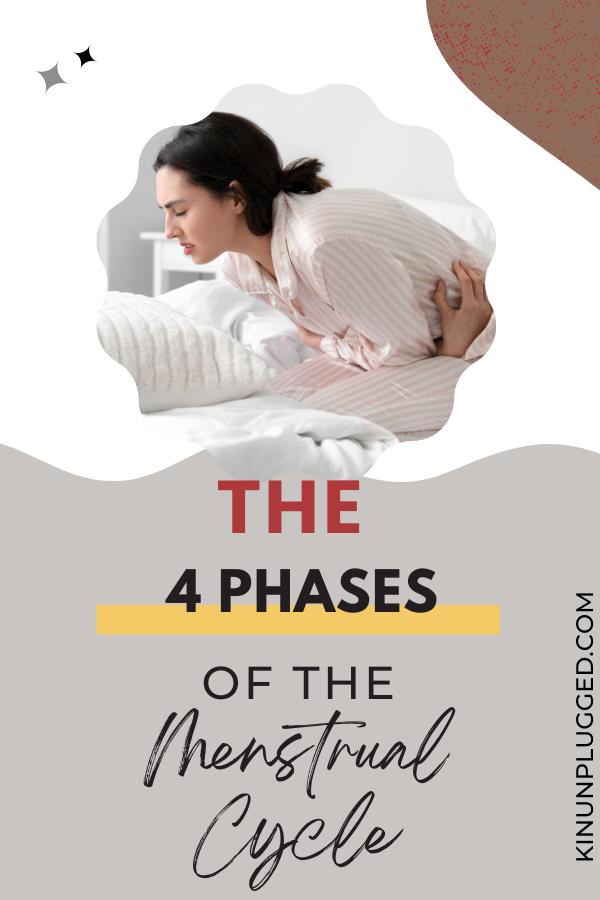
Your menstrual cycle is a natural process that occurs in the female reproductive system. It involves various hormonal and physiological changes that prepare the body for pregnancy. The cycle typically lasts about 28 days, but that can vary for each female.
The menstrual cycle is made up of four main phases:
1. Menstruation. The first phase, known as menstruation or the menstrual period, occurs when the uterine lining sheds and is expelled through the vagina. This usually lasts 3-7 days.
2. Follicular Phase. Following menstruation, the follicular phase begins. During this phase, the pituitary gland releases follicle-stimulating hormone (FSH), which stimulates the development of an egg follicle in the ovary. The follicle produces estrogen, which thickens the uterine lining.
3. Ovulation. Ovulation is the release of a mature egg from the ovary. It usually occurs around the midpoint of the menstrual cycle, triggered by a surge in luteinizing hormone (LH). The released egg then travels through the fallopian tube, where it can be fertilized by sperm.
4. Luteal Phase. After ovulation, the luteal phase begins. The ruptured follicle, now called the corpus luteum, produces progesterone. This hormone helps prepare the uterine lining for potential implantation of a fertilized egg. If fertilization doesn’t happen, hormone levels drop leading to the start of a new menstrual cycle.
These phases repeat in a cyclical manner, with the menstrual cycle starting anew after the completion of one cycle. Understanding the menstrual cycle can help us to track our fertility, plan contraception, and provide insights into our reproductive health.
RELATED: Embracing chaos as a Mom: Why and How
The normalcy and natural process of menstruation
Menstruation is a normal and natural process that occurs in the female body. It is a sign of reproductive health and signifies the body’s readiness for potential pregnancy. Menstruation is a natural way for the body to cleanse and renew itself each month.
While it may involve discomfort or changes in mood for some females, experiencing menstruation is a common and necessary part of a person’s reproductive life. It’s so important to normalize periods, promote open discussions about it, and ensure access to resources and support for menstrual hygiene management.
Common misconceptions and negative perceptions about periods
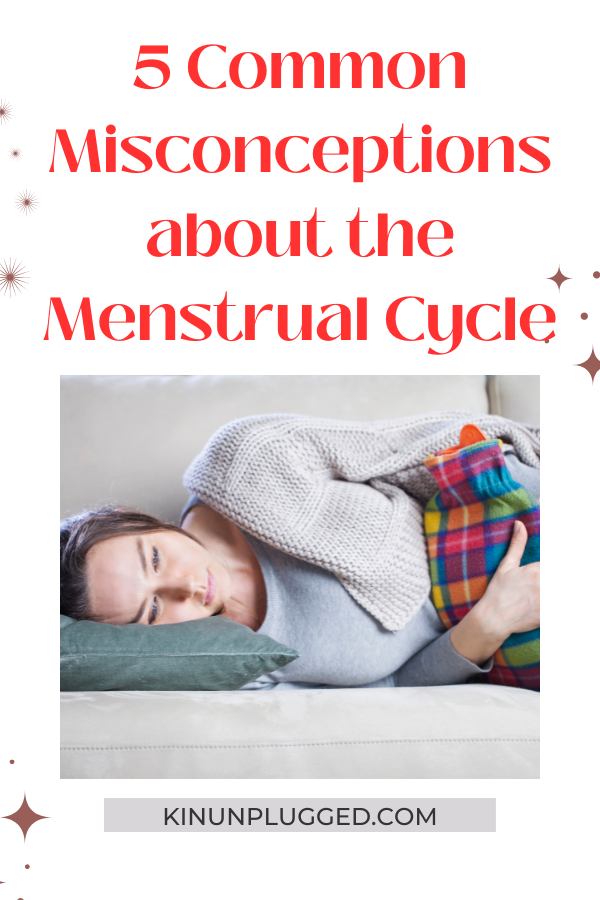
There are several misconceptions and negative perceptions surrounding the menstrual cycle that need to be addressed because they are stopping us from celebrating menstruation. Here are a few common ones:
1. Menstruation is Dirty. Periods are often wrongly associated with being unclean or dirty. In reality, menstruation is a natural bodily function and does not make someone unclean or impure. Menstrual blood is a normal part of the reproductive process and should be approached with understanding and acceptance.
2. Menstruation is a Sign of Weakness. Menstruation is sometimes perceived as a sign of weakness or fragility, which is far from the truth. Menstruation is a biological process that reflects the body’s ability to function and prepare for potential pregnancy. It does not define a person’s strength or capabilities.
3. Menstruation is a Taboo Topic. Periods have historically been surrounded by taboos and silence, making it a difficult topic to discuss openly. Breaking this taboo is important for promoting menstrual health, addressing misconceptions, and providing proper education and support.
4. PMS (Premenstrual Syndrome) Equals Mood Swings. While some individuals may experience changes in mood or emotions before or during their period, it is important to understand that not all women experience severe mood swings. PMS symptoms vary from person to person, and it is crucial not to generalize or stigmatize individuals based on these symptoms.
5. Menstrual Pain is Normal. While some discomfort or mild cramping may be normal during periods, severe pain that interferes with daily activities is not. Conditions like endometriosis or menstrual disorders can cause intense pain and should be properly diagnosed and treated.
Periods are a natural and normal part of life, and it should be embraced with understanding, compassion, and acceptance.
The Physical Benefits of Periods for Moms
Hormonal changes and their impact on emotional well-being
Hormonal changes during the menstrual cycle can have an impact on emotional well-being, which can be beneficial for moms. Hormonal fluctuations can sometimes be associated with mood changes, and those changes are normal and temporary.
During your period, hormone levels, particularly estrogen and progesterone, rise and fall. These hormonal shifts can influence neurotransmitters in the brain, such as serotonin and dopamine, which play a role in regulating mood.
For some women, the premenstrual phase may bring about emotional changes like irritability, mood swings, or sensitivity.
The benefit for moms lies in the fact that experiencing these hormonal changes can provide an opportunity for self-reflection, self-care, and a deeper understanding of one’s emotional well-being.
It can serve as a reminder to prioritize self-care practices, such as engaging in relaxation techniques, exercise, healthy eating, and stress management strategies.
By celebrating menstruation, moms can learn to navigate their emotional states with greater awareness and self-compassion. It allows them to recognize the importance of self-care and take the necessary steps to maintain their emotional well-being throughout their menstrual cycle.
This self-awareness and self-care can positively impact their overall mental health, resilience, and ability to navigate the challenges and joys of motherhood.
Natural detoxification and its health benefits
Periods provide a natural detoxification process for the female body, which can be advantageous for moms. During the menstrual cycle, the shedding of the uterine lining allows for the elimination of waste materials, toxins, and excess iron from the body.
One of the key components of menstrual blood is the shedding of the endometrium, which contains cellular debris and other waste products. This shedding helps to cleanse the uterus and remove substances that are no longer needed. This natural detoxification process allows the body to eliminate accumulated toxins and maintain its overall health.
Periods can also help regulate iron levels in the body. Iron is an essential mineral that plays a crucial role in various bodily functions. Menstruation allows the body to naturally eliminate excess iron, which can be beneficial since high iron levels have been associated with certain health risks.
By going through regular menstrual cycles, moms have the advantage of a built-in natural detoxification mechanism. This process supports the body’s overall well-being by aiding in the elimination of waste and excess iron. It contributes to maintaining a healthy balance within the body and promoting optimal health.
It’s important to note that individual experiences and health circumstances may vary, and if there are concerns about detoxification or other health issues, it is advisable for you to consult with a healthcare professional for personalized guidance and support.
Improved reproductive health and fertility
For moms, having regular menstrual periods can be seen as a benefit because it indicates improved reproductive health and fertility. Regular menstruation is a sign that the body is going through the normal hormonal changes necessary for the reproductive system to function optimally.
Having regular periods is an indication that ovulation, the release of a mature egg from the ovary, is occurring. Ovulation is essential for fertility, as it provides an opportunity for conception and pregnancy.
A regular menstrual cycle suggests that the necessary hormonal balance and ovulatory processes are taking place, increasing the chances of successful conception for moms who are trying to get pregnant.
Also, regular menstruation signifies that the reproductive organs, including the uterus and ovaries, are healthy and functioning properly. It reflects a well-regulated hormonal system, which is important for overall reproductive health.
Regular menstrual cycles provide a predictable pattern that can help moms track their fertility. By understanding their menstrual cycle, moms can identify their most fertile days and plan intercourse accordingly, optimizing the chances of conception.
Moms may face physical discomfort, emotional changes, time constraints, and social stigma during their periods. Recognizing and addressing these challenges with support, open communication, and self-care practices can help alleviate the impact on moms’ well-being.
Practical Tips for Moms to Love Their Periods
7 Self-care practices during menstruation
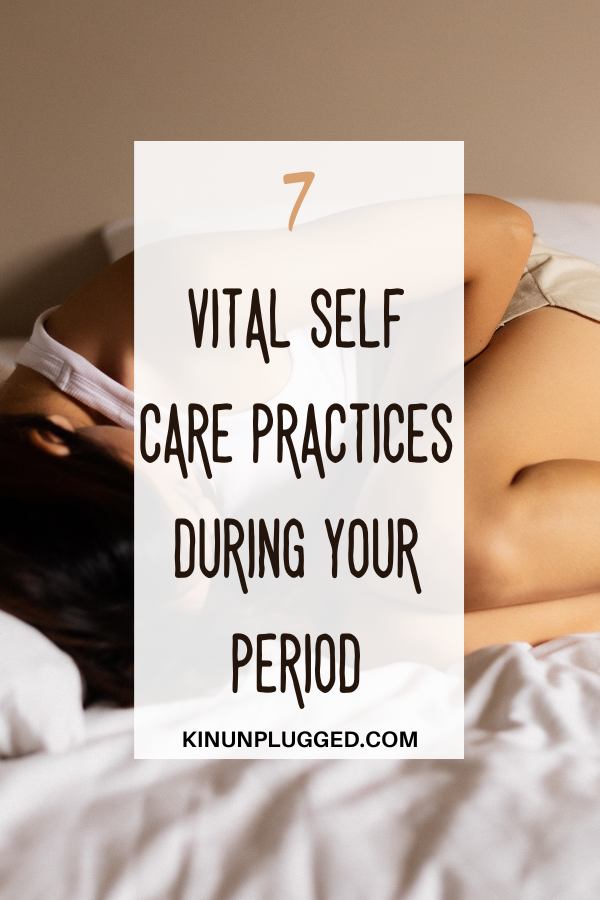
Engaging in self-care practices during your period is important to support physical and emotional well-being and be able to get to the point of celebrating menstruation. Here are some self-care practices that can help during this time:
1. Rest and Relaxation. Allow yourself to rest and take breaks when needed. Prioritize getting enough sleep and engage in activities that promote relaxation, such as taking warm baths, practicing mindfulness or meditation, or indulging in a favorite hobby.
2. Gentle Exercise. Light physical activity like walking, yoga, or stretching can help relieve menstrual cramps, improve mood, and boost energy levels. Listen to your body and engage in exercises that feel comfortable and supportive during your period.
3. Heat Therapy. Applying a heating pad or taking a warm bath can help alleviate menstrual cramps and provide soothing relief to abdominal discomfort.
4. Healthy Diet. Maintain a balanced diet rich in fruits, vegetables, whole grains, and lean proteins to support overall well-being. Stay hydrated by drinking plenty of water and herbal teas.
5. Pain Relief. Over-the-counter pain relievers, such as ibuprofen or acetaminophen, can help manage menstrual pain. Follow the recommended dosage and consult with a healthcare professional if needed.
6. Comfortable Clothing. Wear comfortable and loose-fitting clothing to support physical comfort during your period. Opt for breathable fabrics that allow your body to move freely.
7. Emotional Support. Seek emotional support from loved ones, friends, or support groups if you’re experiencing mood swings or emotional changes. Talking about your feelings and experiences can provide comfort and understanding.
Managing period-related challenges while being a mom

Managing period-related challenges while being a mom can indeed be tough, but there are several strategies that can help you navigate this time more smoothly. Here are some ideas.
1. Plan ahead. Keep track of your menstrual cycle and anticipate when your period is likely to occur. This can help you prepare in advance and make necessary arrangements.
2. Communicate with your family. Let your partner and older children know about your menstrual cycle and the challenges you may face during this time. Open communication can help them understand and provide support when needed.
3. Take care of yourself. Prioritize self-care during your period. Make sure to get enough rest, eat a balanced diet, and engage in activities that help you relax and alleviate discomfort.
4. Delegate responsibilities. Don’t hesitate to delegate household chores and parenting tasks to your partner or older children when you’re experiencing period-related challenges. Sharing the load can help you manage your symptoms and take care of yourself.
5. Use menstrual products that suit you. Explore different menstrual products like tampons, pads, or menstrual cups to find what works best for you. Consider the convenience and comfort they offer when choosing.
6. Seek support from other moms. Connect with other moms who may be experiencing similar challenges. Online communities or local support groups can provide a platform for sharing experiences, advice, and emotional support.
7. Prepare a period kit. Create a small kit with essentials like menstrual products, pain relievers, spare underwear, wet wipes, and any other items you find helpful during your period. Keep it easily accessible, whether it’s in your bag or a designated spot at home.
8. Stay active. Engaging in light exercises or gentle activities like stretching or walking can help alleviate cramps and boost your mood. Find opportunities to move your body, even if it’s just for a short time.
9. Plan for child-friendly activities. If you have younger children, plan activities that are less physically demanding or allow for more relaxed supervision during your period. This can be a good time for quieter activities like reading, crafts, puzzles, or watching a movie together.
10. Be flexible with your schedule. If possible, try to plan your tasks and commitments around your period. Adjust your schedule to allow for breaks or rest periods as needed. Being flexible can reduce stress and provide you with the time and space you need to manage your symptoms.
11. Explore pain relief options. Talk to your healthcare provider about over-the-counter pain relievers or other methods that may help alleviate period-related pain or discomfort. They can provide guidance based on your specific needs and medical history.
12. Practice self-compassion. Remember that it’s normal to experience fluctuations in energy, mood, and productivity during your period. Be kind to yourself and practice self-compassion during this time. Allow yourself to rest when necessary and know that it’s okay to ask for help or take a break when needed.
13. Create a supportive environment. Designate a comfortable space for yourself where you can retreat if you need some alone time during your period. Communicate to your family members that this is your personal space during those moments and ask for their understanding and respect.
14. Practice stress management techniques. Stress can worsen period symptoms. Explore stress management techniques like deep breathing exercises, meditation, yoga, or listening to calming music. Find what works best for you to help reduce stress levels during your period.
15. Seek professional advice if needed. If your period-related challenges are significantly impacting your daily life, consider consulting a healthcare professional. They can provide guidance, evaluate your symptoms, and suggest appropriate treatment options to help you manage your periods more effectively.
16. Prioritize sleep. Adequate sleep is crucial for managing your period-related challenges. Try to maintain a regular sleep schedule and create a soothing bedtime routine. If possible, ask your partner to assist with nighttime parenting duties, allowing you to get the rest you need.
17. Stay hydrated and eat nutritious meals. Proper hydration and a balanced diet can support your overall well-being during your period. Drink plenty of water and consume foods rich in vitamins, minerals, and fiber. This can help alleviate bloating, reduce fatigue, and support your energy levels.
18. Consider alternative therapies. Some women find relief from period-related challenges through alternative therapies such as acupuncture, herbal remedies, or aromatherapy. Talk to a qualified practitioner to explore these options and determine if they might be suitable for you.
It’s okay to prioritize your well-being during your period while fulfilling your responsibilities as a mom. By taking care of yourself, you’ll be better equipped to take care of your family!
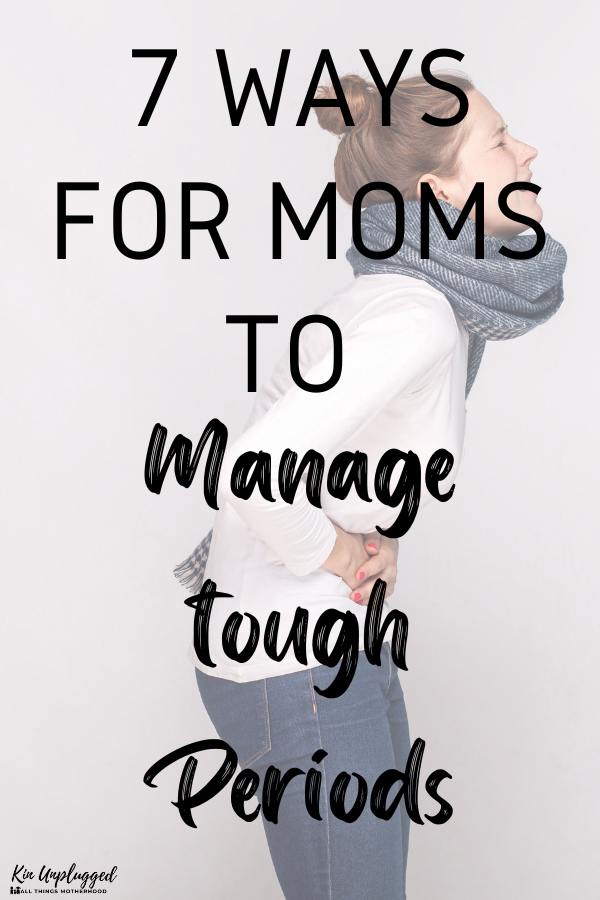
Celebrating menstruation is a journey that some moms have never achieved in their lifetime. If you consciously attempt the steps above though, it is possible!
I’d love for you to share your positive experiences with celebrating menstruation in the comment section below.
READ:



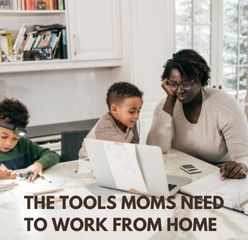


2 Comments
Love this!! Such a unique perspective! Thank you for sharing!
Although periods are a nuisance I do appreciate it for being a part of the reproduction system and giving me a daughter. These are great tips to help ease the period week.